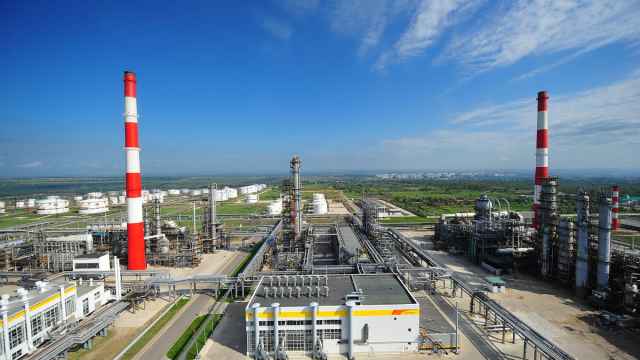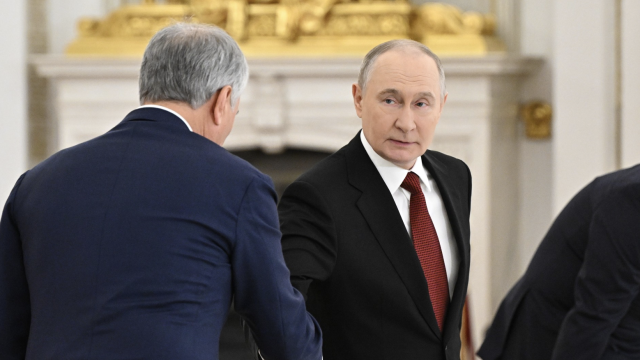Statoil has been quick to offer pipeline gas contracts linked to spot prices rather than oil, and it stands to gain the most from these deals, while the impact of the shift to spot pricing on Gazprom is likely to be mixed.
Europe's two biggest suppliers of pipeline gas, Statoil and Gazprom, have traditionally signed long-term contracts with European buyers linked to the price of oil.
Because oil has been expensive compared with spot gas, this link has helped keep contract gas prices high.
An increasing number of Europe's utilities have sought to decouple their gas contracts from oil and link closer to spot markets such as Britain's National Balancing Point, Europe's biggest gas hub.
"Forty to 45 percent of long-term gas contracts are now hub-indexed," consultancy firm Energy Aspects said in a research paper published in August.
Many utilities are due this decade to renew gas supply contracts, which have typically lasted more than 20 years.
If they sign spot-linked contracts, their hopes that spot gas will remain cheaper than oil-linked deals are likely to be disappointed. Instead, the biggest shift by the middle of the decade could be toward lower oil prices.
"We see the spot gas market strengthening over the next three to four years," said Massimo Di-Odoardo, principal analyst at energy researchers Wood Mackenzie.
"From this winter, we see a risk for spot prices being higher than the oil-indexed price," he added.
The Brent crude price curve shows a 10 percent drop between now and 2015, while forward gas prices rise slightly.
Analyst group Pira Energy say world oil supply will grow in 2014, driven by American shale oil output. A PricewaterhouseCoopers (PwC) report also said oil prices could peak in the next few years.
"Investment choices based on predictions of a steady increase in oil prices may need to be reassessed," PwC said.
Statoil could emerge a winner from such developments as it shifts from oil to gas and has been faster than its competitors to offer spot gas deals.
"With oil prices expected to go down, Statoil is likely going to benefit the most from higher spot prices," Wood Mackenzie's Di-Odoardo said.
The share of gas in Statoil's total output rose by 3 percent to 43 percent between 2011 and 2012, a trend that is set to continue. The company says it now sells about half its gas under spot market terms, including almost all of its supplies to Britain, Europe's biggest gas market.
As a result, Statoil's share of Europe's gas market has risen steadily in recent years.
For Gazprom, still Europe's biggest supplier, the impact of the shift toward the spot market would have both negative and positive consequences.
It has been forced into more spot-linked pricing, but it prefers giving out rebates to changing its contracts, and lower oil prices would strengthen its position in defending its model.
"Spot prices cannot be a basis for price-making in our long-term contracts as they, in continental Europe, reflect the current environment on small and marginal segments of the gas market," Gazprom spokesman Sergei Kupriyanov said.
Cheaper oil would reduce Gazprom's revenues, but Wood Mackenzie says it could boost the company's market share as its gas becomes more competitive.
\\CHEAPER OIL?\\
Despite the weak global economy in recent years, oil and gas prices are high because of booming Asian demand and disruption of supplies due to unrest in North Africa and the Middle East.
Because gas prices are much higher in Asia than in Europe, exporters of liquefied natural gas (LNG) have been shipping most of their cargoes east.
Meanwhile, European spot prices have shifted more toward Asian levels this year due partly to frequent Norwegian pipeline outages.
"Recent high [hub] prices remind us that the loss of LNG [to Europe] has made the market acutely vulnerable to Norwegian flows," Energy Aspects said.
Oil-linked gas prices are still more expensive. Russian oil-indexed prices are estimated at around 90 pence per therm, compared with a hub price of under 70 pence.
But many analysts say oil prices could easily drop from over $100 per barrel to less than $80 by mid-decade, although they acknowledge the forecast is subject to political risk in the Middle East and North Africa.
When prices were last at about $80 in 2010, oil-indexed Russian gas prices were about 50 pence per therm, only slightly higher than British spot gas prices of 40 to 50 pence per therm at the time.
The spot market has to compete not only with higher prices in Asia but also with the costs of new supplies. New reserves, including European shale deposits, are unlikely to bring prices lower in the coming years.
"European shale costs would be two to three times higher than in the U.S.," David Buchan Of the Oxford Institute for Energy Studies said in a report published in July, so the cheapest new gas source will be U.S. LNG, expected from 2015.
While the shale boom has pulled U.S. gas prices down to $3.50 per million British thermal units (mmBtu), analysts say that once fees are added, it will arrive in Europe at spot prices of about $9 per mmBtu.
The U.S. forward gas curve shows a price rise to more than $4 by late 2015, and U.S. supplies are likely to flow mostly to Asia.
Statoil, which cannot increase export volumes by much, would therefore benefit should oil prices drop but spot prices remain high. Gazprom, by contrast, can easily increase exports and would regain market share through lower prices.
A Message from The Moscow Times:
Dear readers,
We are facing unprecedented challenges. Russia's Prosecutor General's Office has designated The Moscow Times as an "undesirable" organization, criminalizing our work and putting our staff at risk of prosecution. This follows our earlier unjust labeling as a "foreign agent."
These actions are direct attempts to silence independent journalism in Russia. The authorities claim our work "discredits the decisions of the Russian leadership." We see things differently: we strive to provide accurate, unbiased reporting on Russia.
We, the journalists of The Moscow Times, refuse to be silenced. But to continue our work, we need your help.
Your support, no matter how small, makes a world of difference. If you can, please support us monthly starting from just $2. It's quick to set up, and every contribution makes a significant impact.
By supporting The Moscow Times, you're defending open, independent journalism in the face of repression. Thank you for standing with us.
Remind me later.





